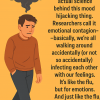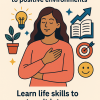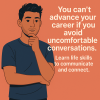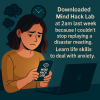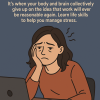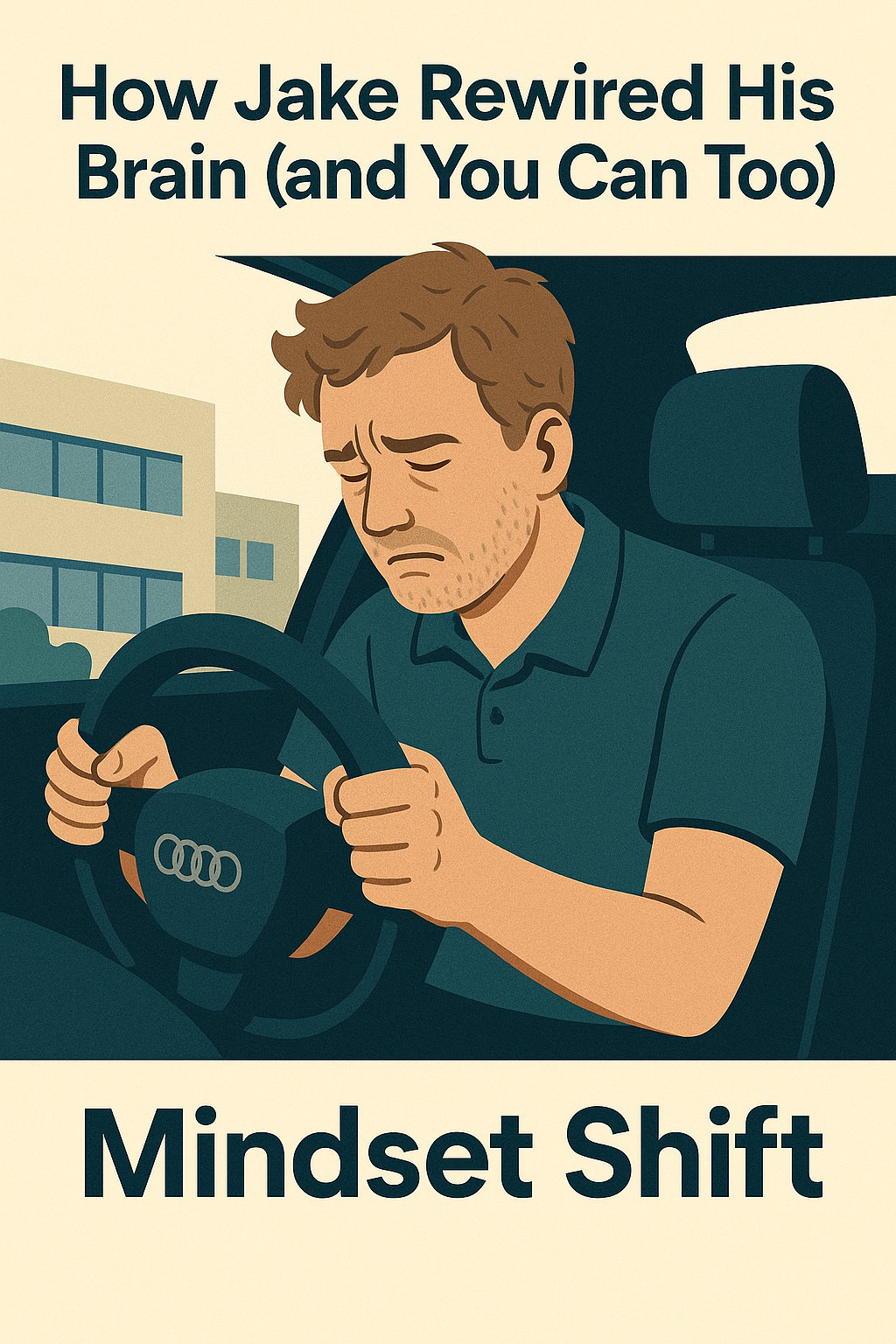
That Thing Where Your Body Sabotages Your Career
Look, I'm writing this at 11:47 PM because I couldn't sleep thinking about tomorrow's client call. Not a big presentation. Just a regular Tuesday check-in. But my brain? My brain thinks we're about to wrestle a bear.
The Night I Forgot How to Speak
Three months ago, I'm standing in Conference Room B (the one with the weird smell), ready to walk through our project timeline. Simple stuff. I'd done it dozens of times.
My manager asks me to start. I open my mouth and... nothing. Not a stutter. Not a stumble. Just silence. Like someone unplugged my voice box.
The fluorescent light buzzed. Someone's Slack kept pinging. And I just stood there, wondering if this was how my career ended—not with a bang, but with my mouth hanging open like a broken garage door.
Your Brain Isn't Broken (It's Just Confused)
Here's what they don't put in the employee handbook: your nervous system can't tell the difference between "presenting Q4 metrics" and "being chased by wolves." Both trigger the same primal oh-shit response.
I learned this after googling "why do I become stupid in meetings" at 2 AM. Turns out, when your amygdala fires up, it literally steals resources from the part of your brain that forms words.
So no, you're not "bad at speaking." Your biology is just really committed to keeping you alive, even when the biggest threat is Linda from procurement asking about budget variances.
What Actually Helped (After I Tried Everything Else)
Everyone told me to "just breathe" or "practice more." I practiced my last presentation so many times, my roommate could recite it. Still forgot the word "implementation" when it mattered.
Then I found Mind Hack Lab through a 3 AM panic spiral. Started with their Center-Breath + Label technique. Sounds simple, right? But there's something about naming exactly what you're feeling—"tight chest, sweaty palms, brain fog"—that makes it less scary.
The Worry Window thing saved me too. Instead of worrying all day about presentations, I set aside 15 minutes at lunch to properly freak out. Scheduled panic. Who knew?
The Stuff Nobody Talks About
Can we be honest about what presentation anxiety actually feels like? It's not just "butterflies." It's:
- Waking up at 3:07 AM (why is it always 3:07?) to practice your opening line
- That weird dry mouth thing that makes you sound like you've been eating saltines
- Forgetting basic words you've used since kindergarten
- The post-presentation shame spiral where you replay every stumble
Oh, and that advice about picturing people in their underwear? Tried it. Now I'm anxious AND uncomfortable. Thanks, internet.
Building Your Survival Kit
After bombing countless meetings, here's what I actually do now:
Before the meeting:
I use the If-Then Meeting Plan from the app. Basically mapping out "if they ask about X, then I'll say Y." Takes the guesswork out when my brain goes offline.
During panic mode:
Press firmly on my sternum for 5-10 seconds. I don't know why it works—something about vagus nerve stimulation—but it stops the spiral. Learned this from Mind Hack Lab's acute anxiety module.
When I blank out:
"Let me think about that for a second." Then I literally count to three in my head. Usually, the words come back. If not, "Can we circle back to that?" Nobody's ever said no.
The Part Where I Admit I'm Still Figuring It Out
Last week, I nailed a product demo. Answered every question, remembered all my stats, didn't make that weird clicking sound even once. Felt invincible.
Yesterday, I forgot my own manager's name during a team intro. Just... gone. "This is... uh... you all know... this person."
Progress isn't linear. Some days you're eloquent. Some days you're a malfunctioning robot. Both are fine.
Actually, wait—
Both aren't fine. They both suck in different ways. But you survive them, and that's what matters.
Here's What Changed Everything
I stopped trying to become a "confident speaker." Started focusing on managing the moments when my biology betrays me. There's a difference.
Mind Hack Lab's 30-minute session taught me more useful stuff than six months of "public speaking tips" articles. Not because it made me confident. Because it gave me tools for when I'm not.
The 2-Minute Reframe literally saved my job interview last month. When my brain started the "they think you're an idiot" spiral, I had a plan. Still nervous? Sure. But functional nervous, not frozen nervous.
If You're Reading This at 3 AM
First, go get some water. Anxiety dehydrates you.
Second, know that whatever meeting or presentation is keeping you up—you'll survive it. Maybe not gracefully. Maybe with some awkward pauses or that clicking sound. But you'll make it through.
Third, consider getting actual help. Not the "believe in yourself" kind. The "here's exactly what to do when your nervous system hijacks your brain" kind.
The Truth Nobody Admits
Recent data shows 66% of professionals reported burnout in 2025—and that's just the ones willing to admit it. The rest of us are out here pretending we're fine while secretly googling "how to not panic during presentations" in the bathroom.
You know what else the research says? People who learn actual nervous system regulation techniques report 70% improvement in their ability to handle work stress. Not from becoming different people. From learning to work with their biology.
Your Move
Tomorrow, you've probably got some meeting. Maybe a big presentation, maybe just a Tuesday standup. Your nervous system might freak out. That's okay.
But wouldn't it be nice to have a plan for when it does?
Mind Hack Lab's brief intervention takes 30 minutes. Tonight. Before your brain keeps you up until 3:07 again.
P.S. - That client call I mentioned at the beginning? I did it. Made the clicking sound twice, forgot the word "integration," but remembered my main points. My hands stopped shaking after minute three. That's progress.


